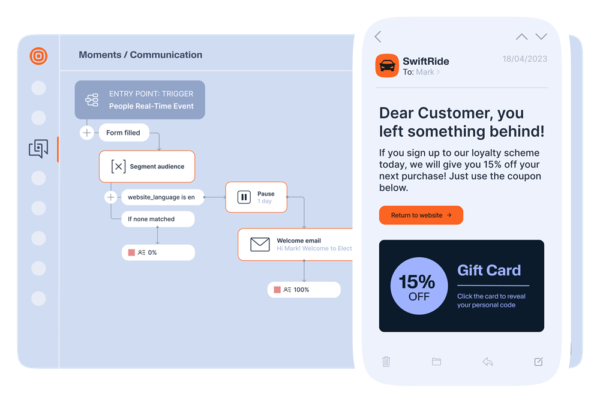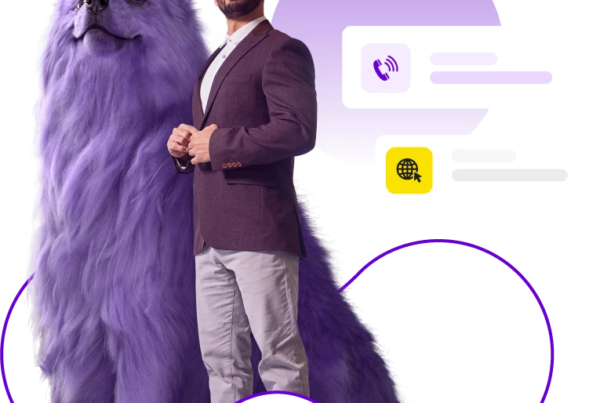In our 5 minutes with profiles, MEF members talk about their business, their aspirations for the future and the wider mobile industry.
This week, Founder and Executive Chairman Julian Ranger introduces Digi.me
What does Digi.me do?
Digi.me enables the Internet of Me, where the individual is at the centre of their digital life, owning and controlling their own data.

Our app aggregates all a user’s data (social, financial, health, purchases, positional and more) into a single local library under the user’s direct control and ownership on their device(s) and personal cloud of their choice – meaning their library is 100% private to them. As well as an interface offering full search and insights into the aggregated data, which gives immediate benefit, we also provide a Permission Access capability.
This allows businesses to request, through digi.me’s unique certificate system, data from the user and, if the user agrees, digi.me passes the data to the business/app/website. This allows a business to access “Rich data” which is wider, deeper and 100% accurate, which in turn helps businesses increase knowledge, engagement, trust and innovation ability whilst meeting all current and projected data protection acts.
When did you launch and what growth have you seen?
It was launched as a part-time venture in 2009, originally as a tool to simply back up Facebook accounts and see or search posted content and pictures in one place, but as we extended to other networks we realised there was a huge demand for data from users, and that it would enable businesses to also get better data whilst engaging with their users. Growth has been secondary to developing the business proposition for the overall Internet of Me concept which is now accelerating quickly, however, we do now have more than 400K users in 150 countries with the app available in 12 languages and worldwide distribution agreements with the largest PC vendors and others.
 What are Digi.me’s main goals?
What are Digi.me’s main goals?
Our key goal is to support individuals, business and society as a whole by unlocking the power of personal data, whilst providing individuals with ownership and control, and businesses the ability to access Rich data at a fraction of the cost they pay for thin data today all whilst meeting all Data Protection acts worldwide by respecting privacy and individual control. We aim to propel the Internet of Me to be the industry standard that everyone works to, with common goals and transparency over data to the benefit of all.
Where do you see yourselves in three years’ time?
Ultimately, we see ourselves as a platform that others will be able to build their apps on, with digi.me being the wiring and base layer of the Internet of Me ecosystem. We expect to have multi-national partners using digi.me across the world to engage directly with their customers, and be powering new innovations in multiple sectors initially targeting Health, Finance, Telco and FMCG, but extending to all areas of personal interaction with business.
What aspect of mobile is most exciting to you right now?
The ability to do more processing ‘at the edge’. Can we minimise data risk and provide enhanced services and privacy by processing at the edge rather than using SAAS for everything – thereby restoring privacy balance whilst allowing individuals to share more data? That’s certainly our belief
What’s the most critical issue that will hit mobile within the next 12 months?
The individual’s propensity to share data on the current terms which are biased against the individual. The rapid rise in ad blocking is a good indicator of this; privacy impact on sharing and existing business models will grow over the next year. Increasing regulation, such as the EU General Data Protection Regulation (GDPR), also has a direct bearing on current mobile data models.
Apart from your own, which mobile companies are the ones to watch in the year ahead?
Julian Ranger
Founder & Executive Chairman
digi.me


Those that recognise that personal data is ultimately all about the individual and what benefits them, and that encouraging users to regain control over that information and who they share it with will bring huge benefits to all of us, including businesses. There are many companies operating in the privacy and data sharing marketplace, but few that really return ownership and control to the individual.
Those that make this a key part of their messaging, implementation and ethos will be the ones to rapidly progress. This can be from the largest such as Telefonica, who have made personal ownership of data a key goal, to the smallest such as Evernym and others.




